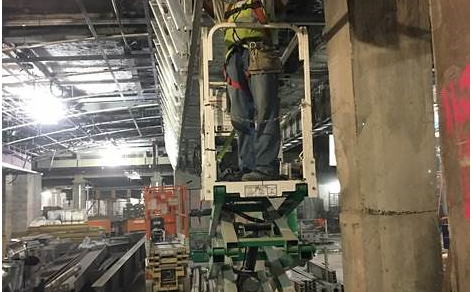Key Takeaways:
- Discover practical strategies to maintain a safe home electrical system.
- Learn crucial tips for handling electrical emergencies.
- Understand the importance of regular electrical maintenance checks.
Table of Contents:
- Introduction: Importance of Electrical Safety in Homes
- Common Electrical Hazards and How to Avoid Them
- Tips for Childproofing Home Electrical Systems
- Circuit breakers’ function in home safety
- Conducting Routine Electrical Inspections
- Handling Electrical Emergencies
- The Benefits of Professional Electrical Services
- Conclusion: Ensuring Long-term Electrical Safety
Introduction: Importance of Electrical Safety in Homes
Electrical safety is crucial for home ownership, accounting for thousands of annual fires, property damage, injuries, and losses. The National Fire Protection Association highlights the need for vigilance and responsible home ownership. Awareness of potential risks and taking preventative measures can reduce incidents. Proactive maintenance of electrical systems and regular safety visits can prevent possible disasters, protecting family, property, and valuable electronics. It’s essential to adopt safety precautions and know when to call in a professional, such as a home electrician Van Buren AR, which, over time, can save a great deal of worry, money, and time.
Electrical systems, often hidden behind walls, are crucial for powering our lives. Electrical emergencies can be prevented with routine maintenance and an understanding of potential risks. Explore practical ways to keep your home’s electrical system safe and reliable for peace of mind.
Common Electrical Hazards and How to Avoid Them
Homeowners should be mindful of frequent electrical hazards, such as overloaded outlets, damaged cords, or improperly installed fixtures. It’s common for households to use extension cords as permanent solutions or ignore a buzzing sound from outlets, ultimately creating dangerous conditions. Inspect your home regularly to identify and correct these risks. Replace frayed wires to prevent potential fires, and use appropriate bulbs for fixtures to avoid overheating. This helpful guide on common electrical hazards provides more information on avoiding these dangers.
Tips for Childproofing Home Electrical Systems
Childproofing your home is essential if you have young children. Curious hands can quickly get into dangerous situations if precautions are not in place. Simple solutions include installing outlet covers that prevent objects from being inserted into electrical sockets and securing loose cords that could cause trips or tugs on devices. Educating children on electrical safety, including staying away from cords and outlets, is equally important. Products like tamper-resistant outlets, which require equal pressure on both slots to open, can also help. Keeping a watchful eye on children and reinforcing safety lessons as they grow can prevent accidents before they occur.
Circuit breakers’ function in home safety
Circuit breakers are vital components in promoting electrical safety. They serve as sentinels, protecting your home by interrupting the flow of electricity during overloads or short circuits, thereby preventing potential fires or catastrophic damage. Regularly testing these breakers ensures they function correctly in an emergency. Should your breakers frequently trip, it may indicate a more significant issue, such as overloading circuits or faulty wiring, which requires consultation with an electrician to safeguard your home adequately.
Conducting Routine Electrical Inspections
Regular electrical inspections are key to identifying issues before they escalate into more severe problems. A methodical examination could involve checking that all switches and outlets function properly, looking for corrosion or wear on exposed wiring, and ensuring any safety equipment, such as smoke detectors, is in working order. You can follow a comprehensive routine electrical inspection guide to assist in this process. Conducting these inspections bi-annually or annually is recommended to maintain a safe living environment.
Handling Electrical Emergencies
Rapid and correct action is crucial in an electrical emergency. First, cut the power supply at the circuit breaker to ensure safety and prevent further risk. Avoid touching any exposed wires; if someone is injured, call emergency services immediately. Preparedness involves more than having the right tools; it means equipping yourself with knowledge. Always have a list of emergency contacts, including an electrician, to address any sudden issues efficiently.
The Benefits of Professional Electrical Services
While many homeowners can handle minor repairs and maintenance, specific projects call for the expertise of a professional electrician. Hiring a professional for everything from installations to extensive repairs ensures that tasks are completed safely and effectively, adhering to the latest codes and regulations. Their expertise not only resolves current issues but also helps identify potential problems, offering preventative solutions that save time and money in the long run. Purchasing expert services is an investment in the durability and safety of your house.
Conclusion: Ensuring Long-term Electrical Safety
Maintaining the electrical system in your house is a continuous effort. You can keep a safe living environment by conducting regular inspections, promptly addressing hazards, and knowing when to call a professional. Proactivity in electrical maintenance safeguards your home and provides peace of mind for you and your family. It represents a commitment to protecting and securing everything you hold dear.



